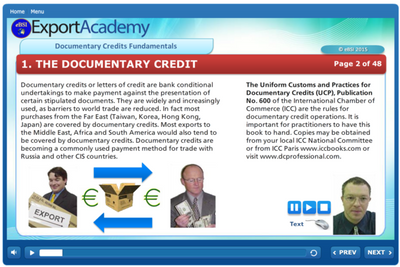Are the URDG inconsistent with Islamic Banking Principles?
As an active trade banker based in Bahrain, a thriving hub for trade and investment in the Middle East my trade banking activity involves me with conventional and Islamic Banking on a daily basis.
It often comes as a surprise to many bankers and traders to learn that in the Trade Finance Department of many Islamic banks, counter-guarantees in favour of foreign correspondents are regularly issued subject to URDG.
One highly respected Head of Sharia Compliance of a leading Islamic bank subscribes to the view that there is nothing in the URDG that, directly or indirectly, is in conflict with the provisions of Sharia principles.
The fact of the matter is that the URDG can be applied to guarantees issued by Islamic banks.
In reality most Islamic bank guarantees are akin to those of the conventional ones insofar as they are both non-funded and fee-based transactions, i.e., they do not involve payment of interest or Riba, the Islamic term for interest. The practices of conventional guarantees and Islamic Banking guarantees are similar except to the extent that the underlying transaction and purpose of guarantee are vital for an Islamic Bank.
The underlying transaction should neither be for a purpose expressly prohibited by Sharia, e.g., for speculative activity or a transaction dealing with import/export of goods or documents covering illegal activities forbidden by Islam, nor for a purpose of seeking an interest-based loan.
Islamic banking discourages abuse of the instruments of a guarantee or documentary credits and advocates fairness, upholding the tenets of equity for all parties concerned. It discourages “unfair calls” on guarantees, a principle no different from that embodied in article 20 of URDG 458, calling for a beneficiary’s statement of default to protect the principal and to deter the beneficiary from making an unfair call.
The independent nature of guarantees is formally recognised in Islamic Banking. For example, the AAOIFI (Accounting and Auditing Organisation for Islamic Financial Institutions) standard 8.6, relating to third- party guarantees, stresses the principle of independence and autonomy of the “promise” (i.e., guarantee) from the “contract”, a principle articulated in sub-article 2 (b) of URDG 458 and article 4 of UCP 600, whereby guarantees or credits are separate transactions from the contracts on which these might be based.
My own country Bahrain and indeed most of the Middle East is still booming and the use of guarantees for trade, investment contracts and construction in experiencing an every increasing cycle.
Contrary to the belief that there are mandatory laws in most Middle Eastern countries requiring that beneficiaries, including ministries and government organizations, demand that the guarantees in their favour be issued on open-ended basis, i.e., without an expiry date or an expiry event, the fact is there are no such legal requirements.
Under the Commercial Law of Bahrain and as per the opinions we have received from some banks in GCC countries, a guarantee cannot be called after its expiry. Moreover, the return of the guarantee by the beneficiary is tantamount to its termination. However, if a beneficiary of a guarantee approaches the issuing bank to extend the validity of the guarantee or, as an alternative, to pay, the issuing bank is obliged to “extend or pay”, provided the beneficiary has approached the issuer within the validity of the guarantee, i.e., prior to the guarantee’s expiry date or expiry event. In this regard, the laws are no different than the relevant provisions of URDG.
In conclusion, the URDG 458 rules have become popular and frequently used rules for guarantees in the Middle East. As a member of the ICC drafting group in the revision to URDG 758 I can verify that the new rules will be well received both within conventional and Islamic Banking circles in the Middle East
Pradeep Taneja is a member of ICC Banking Commission and of the URDG Drafting Group. He is Chairman of the ICC Bahrain Trade Finance Forum and Head of Trade Finance at Transactional Banking Division with BBK (Bank of Bahrain and Kuwait), Manama, Bahrain. This article was published in ICC publication DCInsight April-June 208 edition. The views expressed herein are his own.






